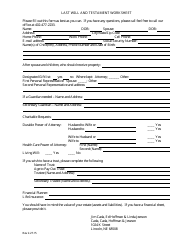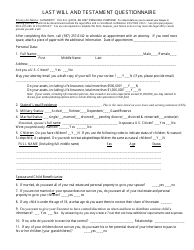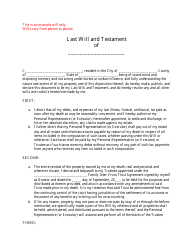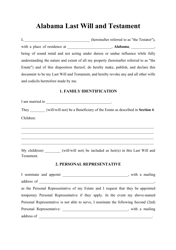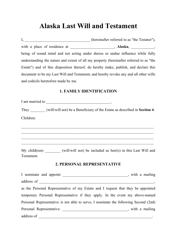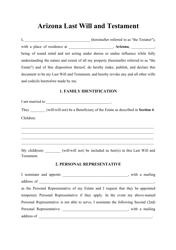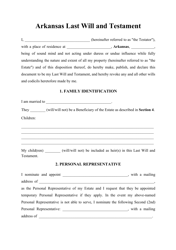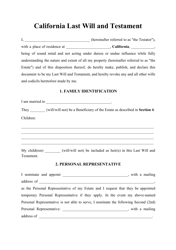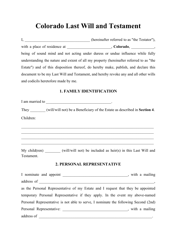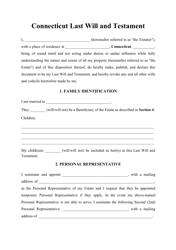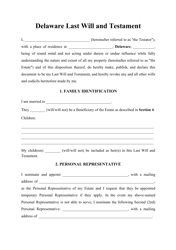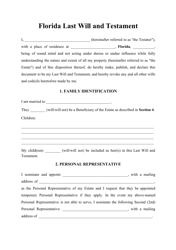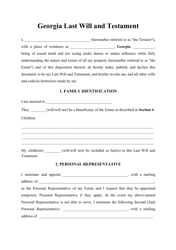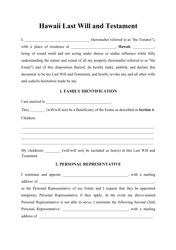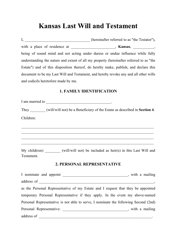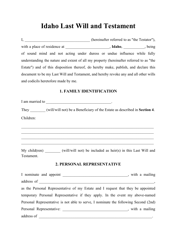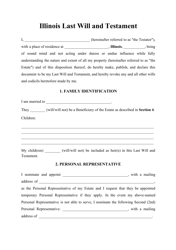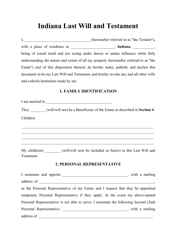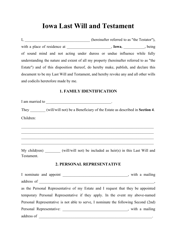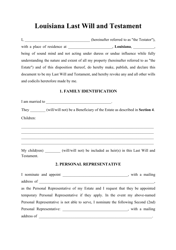Genealogical Codicil to Last Will and Testament Template
A Genealogical Codicil to Last Will and Testament Template is a document that helps individuals make changes to their will to include specific provisions regarding their family history and genealogy. It allows individuals to provide important information about their family lineage and ensure that their estate is distributed according to their wishes.
FAQ
Q: What is a genealogical codicil to a last will and testament?
A: A genealogical codicil is a legal document that modifies or adds to an existing last will and testament to specifically address matters related to family relationships and inheritance.
Q: When do I need a genealogical codicil?
A: You may need a genealogical codicil if you want to update your will to include specific provisions regarding your family members or to address any changes in your family structure, such as births, adoptions, or marriages.
Q: Do I need a lawyer to create a genealogical codicil?
A: While it's not required to have a lawyer, it is highly recommended to consult with an estate planning attorney to ensure that the genealogical codicil is properly drafted and legally valid.
Q: What should be included in a genealogical codicil?
A: A genealogical codicil should clearly state the changes or additions you want to make to your existing will, such as naming specific beneficiaries, modifying inheritance percentages, or addressing any unique family situations.
Q: Can a genealogical codicil be contested?
A: Like any legal document, a genealogical codicil can be subject to contestation. To minimize the chances of contestation, it is important to ensure that the codicil follows all legal requirements and that your intentions are clearly expressed.
Q: How do I ensure my genealogical codicil is valid?
A: To ensure the validity of your genealogical codicil, it is advisable to consult with an experienced estate planning attorney who can assist you in drafting the document in accordance with the laws of your state.
Q: Can I revoke a genealogical codicil?
A: Yes, you can revoke a genealogical codicil at any time by executing a new codicil or creating an entirely new last will and testament that supersedes the previous one, expressly revoking the previous provisions.
Q: Should I keep a copy of my genealogical codicil with my will?
A: Yes, it is important to keep a copy of your genealogical codicil with your will, as well as informing your executor and loved ones of its existence and location to ensure that your wishes are properly carried out.


